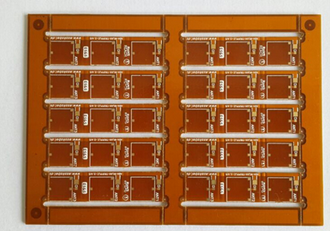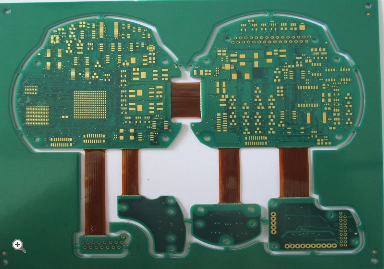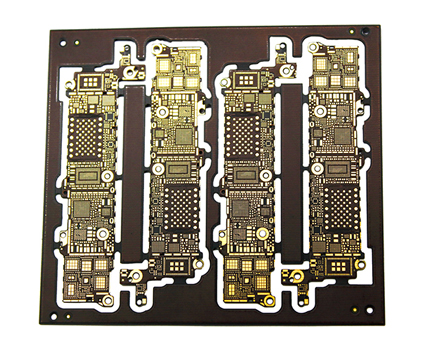-
 Agriculture
Agriculture
-
 Health-Care
Health-Care
-
 Environment
Environment
-
 Construction-Real-Estate
Construction-Real-Estate
-
 Tools-Hardware
Tools-Hardware
-
 Home-Garden
Home-Garden
-
 Furniture
Furniture
-
 Luggage-Bags-Cases
Luggage-Bags-Cases
-
 Medical-devices-Supplies
Medical-devices-Supplies
-
 Gifts-Crafts
Gifts-Crafts
-
 Sports-Entertainment
Sports-Entertainment
-
 Food-Beverage
Food-Beverage
-
 Vehicles-Transportation
Vehicles-Transportation
-
 Power-Transmission
Power-Transmission
-
 Material-Handling
Material-Handling
-
 Renewable-Energy
Renewable-Energy
-
 Safety
Safety
-
 Testing-Instrument-Equipment
Testing-Instrument-Equipment
-
 Construction-Building-Machinery
Construction-Building-Machinery
-
 Pet-Supplies
Pet-Supplies
-
 Personal-Care-Household-Cleaning
Personal-Care-Household-Cleaning
-
 Vehicle-Accessories-Electronics-Tools
Vehicle-Accessories-Electronics-Tools
-
 School-Office-Supplies
School-Office-Supplies
-
 Packaging-Printing
Packaging-Printing
-
 Mother-Kids-Toys
Mother-Kids-Toys
-
 Business-Services
Business-Services
-
 Commercial-Equipment-Machinery
Commercial-Equipment-Machinery
-
 Apparel-Accessories
Apparel-Accessories
-
 Security
Security
-
 Shoes-Accessories
Shoes-Accessories
-
 Vehicle-Parts-Accessories
Vehicle-Parts-Accessories
-
 Jewelry-Eyewear-Watches-Accessories
Jewelry-Eyewear-Watches-Accessories
-
 Lights-Lighting
Lights-Lighting
-
 Fabric-Textile-Raw-Material
Fabric-Textile-Raw-Material
-
 Fabrication-Services
Fabrication-Services
-
 Industrial-Machinery
Industrial-Machinery
-
 Consumer-Electronics
Consumer-Electronics
-
 Electrical-Equipment-Supplies
Electrical-Equipment-Supplies
-
 Electronic-Components-Accessories-Telecommunications
Electronic-Components-Accessories-Telecommunications
-
 Home-Appliances
Home-Appliances
-
 Beauty
Beauty
-
 Chemicals
Chemicals
-
 Rubber-Plastics
Rubber-Plastics
-
 Metals-Alloys
Metals-Alloys
- Masonry Materials
- Curtain Walls & Accessories
- Earthwork Products
- Fireproofing Materials
- Heat Insulation Materials
- Plastic Building Materials
- Building Boards
- Soundproofing Materials
- Timber
- Waterproofing Materials
- Balustrades & Handrails
- Bathroom & Kitchen
- Flooring & Accessories
- Tiles & Accessories
- Door, Window & Accessories
- Fireplaces & Stoves
- Floor Heating Systems & Parts
- Stairs & Stair Parts
- Ceilings
- Elevators & Escalators
- Stone
- Countertops, Vanity Tops & Table Tops
- Mosaics
- Metal Building Materials
- Multifunctional Materials
- Ladders & Scaffoldings
- Mouldings
- Corner Guards
- Decorative Films
- Formwork
- Building & Industrial Glass
- Other Construction & Real Estate
- Wallpapers/Wall panels
- HVAC System & Parts
- Outdoor Facilities
- Prefabricated Buildings
- Festive & Party Supplies
- Bathroom Products
- Household Sundries
- Rain Gear
- Garden Supplies
- Household Cleaning Tools & Accessories
- Lighters & Smoking Accessories
- Home Storage & Organization
- Household Scales
- Smart Home Improvement
- Home Textiles
- Kitchenware
- Drinkware & Accessories
- Dinnerware, Coffee & Wine
- Home Decor
- Golf
- Fitness & Body Building
- Amusement Park Facilities
- Billiards, Board Game,Coin Operated Games
- Musical Instruments
- Outdoor Affordable Luxury Sports
- Camping & Hiking
- Fishing
- Sports Safety&Rehabilitation
- Ball Sports Equipments
- Water Sports
- Winter Sports
- Luxury Travel Equipments
- Sports Shoes, Bags & Accessories
- Cycling
- Other Sports & Entertainment Products
- Artificial Grass&Sports Flooring&Sports Court Equipment
- Scooters
- Food Ingredients
- Honey & Honey Products
- Snacks
- Nuts & Kernels
- Seafood
- Plant & Animal Oil
- Beverages
- Fruit & Vegetable Products
- Frog & Escargot
- Bean Products
- Egg Products
- Dairy Products
- Seasonings & Condiments
- Canned Food
- Instant Food
- Baked Goods
- Other Food & Beverage
- Meat & Poultry
- Confectionery
- Grain Products
- Feminie Care
- Hair Care & Styling
- Body Care
- Hands & Feet Care
- Hygiene Products
- Men's Grooming
- Laundry Cleaning Supplies
- Travel Size & Gift Sets
- Room Deodorizers
- Other Personal Care Products
- Pest Control Products
- Special Household Cleaning
- Floor Cleaning
- Kitchen & Bathroom Cleaning
- Oral Care
- Bath Supplies
- Yellow Pages
- Correction Supplies
- Office Binding Supplies
- Office Cutting Supplies
- Board Erasers
- Office Adhesives & Tapes
- Education Supplies
- Pencil Cases & Bags
- Notebooks & Writing Pads
- File Folder Accessories
- Calendars
- Writing Accessories
- Commercial Office Supplies
- Pencil Sharpeners
- Pens
- Letter Pad/Paper
- Paper Envelopes
- Desk Organizers
- Pencils
- Markers & Highlighters
- Filing Products
- Art Supplies
- Easels
- Badge Holder & Accessories
- Office Paper
- Printer Supplies
- Book Covers
- Other Office & School Supplies
- Stationery Set
- Boards
- Clipboards
- Stamps
- Drafting Supplies
- Stencils
- Electronic Dictionary
- Books
- Map
- Magazines
- Calculators
- Baby & Toddler Toys
- Educational Toys
- Classic Toys
- Dress Up & Pretend Play
- Toy Vehicle
- Stuffed Animals & Plush Toys
- Outdoor Toys & Structures
- Balloons & Accessories
- Baby Food
- Children's Clothing
- Baby Supplies & Products
- Maternity Clothes
- Kids Shoes
- Baby Care
- Novelty & Gag Toys
- Dolls & Accessories
- Puzzle & Games
- Blocks & Model Building Toys
- Toddler Clothing
- Baby Clothing
- Kids' Luggage & Bags
- Arts, Crafts & DIY Toys
- Action & Toy Figures
- Baby Appliances
- Hobbies & Models
- Remote Control Toys
- Promotional Toys
- Pregnancy & Maternity
- Hygiene Products
- Kid's Textile&Bedding
- Novelty & Special Use
- Toy Weapons
- Baby Gifts
- Baby Storage & Organization
- Auto Drive Systems
- ATV/UTV Parts & Accessories
- Marine Parts & Accessories
- Other Auto Parts
- Trailer Parts & Accessories
- Auto Transmission Systems
- Train Parts & Accessories
- Universal Parts
- Railway Parts & Accessories
- Auto Brake Systems
- Aviation Parts & Accessories
- Truck Parts & Accessories
- Auto Suspension Systems
- Auto Lighting Systems
- New Energy Vehicle Parts & Accessories
- Auto Steering Systems
- Wheels, Tires & Accessories
- Bus Parts & Accessories
- Auto Performance Parts
- Cooling System
- Go-Kart & Kart Racer Parts & Accessories
- Air Conditioning Systems
- Heavy Duty Vehicle Parts & Accessories
- Auto Electrical Systems
- Auto Body Systems
- Auto Engine Systems
- Container Parts & Accessories
- Motorcycle Parts & Accessories
- Refrigeration & Heat Exchange Equipment
- Machine Tool Equipment
- Food & Beverage Machinery
- Agricultural Machinery & Equipment
- Apparel & Textile Machinery
- Chemical Machinery
- Packaging Machines
- Paper Production Machinery
- Plastic & Rubber Processing Machinery
- Industrial Robots
- Electronic Products Machinery
- Metal & Metallurgy Machinery
- Woodworking Machinery
- Home Product Manufacturing Machinery
- Machinery Accessories
- Environmental Machinery
- Machinery Service
- Electrical Equipment Manufacturing Machinery
- Industrial Compressors & Parts
- Tobacco & Cigarette Machinery
- Production Line
- Used Industrial Machinery
- Electronics Production Machinery
- Other Machinery & Industrial Equipment
- Camera, Photo & Accessories
- Portable Audio, Video & Accessories
- Television, Home Audio, Video & Accessories
- Video Games & Accessories
- Mobile Phone & Accessories
- Electronic Publications
- Earphone & Headphone & Accessories
- Speakers & Accessories
- Smart Electronics
- TV Receivers & Accessories
- Mobile Phone & Computer Repair Parts
- Chargers, Batteries & Power Supplies
- Used Electronics
- VR, AR, MR Hardware & Software
- Projectors & Presentation Equipments
- Other Consumer Electronics
- Cables & Commonly Used Accessories
- Computer Hardware & Software
- Displays, Signage and Optoelectronics
- Discrete Semiconductors
- Wireless & IoT Module and Products
- Telecommunications
- Connectors, Terminals & Accessories
- Development Boards, Electronic Modules and Kits
- Circuit Protection
- Sensors
- Isolators
- Audio Components and Products
- Integrated Circuits
- Power Supplies
- Relays
- RF, Microwave and RFID
- Electronic Accessories & Supplies
- Passive Components
- PCB & PCBA
- Air Quality Appliances
- Home Appliance Parts
- Heating & Cooling Appliances
- Small Kitchen Appliances
- Laundry Appliances
- Water Heaters
- Water Treatment Appliances
- Refrigerators & Freezers
- Personal Care & Beauty Appliances
- Major Kitchen Appliances
- Cleaning Appliances
- Second-hand Appliances
- Smart Home Appliances
- Other Home Appliances
- Energy Chemicals
- Inorganic Chemicals
- Basic Organic Chemicals
- Agrochemicals
- Admixture & Additives
- Catalysts & Chemical Auxiliary Agents
- Pigments & Dyestuff
- Coating & Paint
- Daily Chemicals
- Polymer
- Organic Intermediate
- Adhesives & Sealants
- Chemical Waste
- Biological Chemical Products
- Surface Treatment Chemicals
- Painting & Coating
- Chemical Reagents
- Flavor & Fragrance
- Non-Explosive Demolition Agents
- Other Chemicals
- Custom Chemical Services
Intelligent AI Control Board The Future Of Automated System Management
Imagine a world where complex systems—from industrial manufacturing lines to smart city infrastructures—operate with seamless efficiency, self-optimizing in real-time without human intervention. This is the promise of the Intelligent AI Control Board, a groundbreaking innovation set to redefine the future of automated system management. As industries worldwide grapple with increasing complexity, data volume, and the demand for precision, traditional control systems are proving inadequate. The Intelligent AI Control Board emerges as a solution, integrating advanced artificial intelligence, machine learning, and IoT connectivity to create autonomous, adaptive management platforms. By leveraging these technologies, it not only enhances operational efficiency but also unlocks new potentials for innovation across sectors, making it a cornerstone of next-generation automation.
Core Technologies and Architecture
The foundation of the Intelligent AI Control Board lies in its sophisticated blend of AI algorithms, including deep learning, neural networks, and reinforcement learning. These technologies enable the board to process vast amounts of data from connected sensors and devices, identifying patterns and making predictive analyses. Unlike static control systems, it continuously learns from its environment, adapting its responses to optimize performance. For instance, in a manufacturing setting, it can predict equipment failures before they occur, scheduling maintenance automatically to minimize downtime.
Architecturally, the board is designed with modularity and scalability in mind, allowing it to integrate with existing systems through APIs and cloud-based platforms. Its edge computing capabilities ensure low-latency decision-making, critical for time-sensitive applications like autonomous vehicles or real-time energy grid management. By combining cloud and edge resources, it achieves a balance between computational power and responsiveness, making it versatile for diverse applications from healthcare to agriculture.
Applications Across Industries
In industrial automation, the Intelligent AI Control Board revolutionizes production lines by enabling fully autonomous operations. It monitors variables such as temperature, pressure, and throughput, adjusting parameters in real-time to maximize output and reduce waste. For example, in the automotive industry, it can coordinate robotic arms and conveyor systems, ensuring precision in assembly while cutting energy consumption by up to 20%. This not only boosts productivity but also enhances safety by reducing human error in hazardous environments.
Beyond manufacturing, its impact extends to smart city management. Here, the board can oversee traffic flow, public transportation, and energy distribution networks. By analyzing data from cameras, sensors, and user devices, it optimizes traffic signals to reduce congestion or dynamically allocates renewable energy resources based on demand forecasts. In healthcare, it manages hospital equipment and patient monitoring systems, predicting health trends and automating responses to emergencies, thereby improving care quality and operational efficiency.
Benefits and Advantages
One of the primary benefits of the Intelligent AI Control Board is its ability to drive significant cost savings through automation and predictive maintenance. By minimizing unplanned downtime and optimizing resource use, businesses can reduce operational expenses by up to 30%, as seen in early adopters in the logistics sector. Additionally, its AI-driven decision-making enhances accuracy, surpassing human capabilities in tasks requiring rapid data processing, such as financial trading systems or climate control in large buildings.
Another advantage is its scalability and flexibility. The board can be deployed in small-scale setups, like smart homes, or expanded to manage entire ecosystems, such as national power grids. Its adaptive nature allows it to evolve with technological advancements, ensuring long-term relevance. Moreover, by reducing reliance on manual oversight, it frees up human workers to focus on creative and strategic tasks, fostering innovation while addressing labor shortages in technical fields.
Future Prospects and Challenges
Looking ahead, the Intelligent AI Control Board is poised to become ubiquitous as AI and IoT technologies mature. Future iterations may incorporate quantum computing for even faster processing or advanced ethics algorithms to ensure unbiased decision-making. As 5G and beyond networks roll out, its real-time capabilities will expand, enabling more complex applications like autonomous drone fleets for delivery or disaster response systems that coordinate across regions seamlessly.
However, challenges remain, including data privacy concerns and the need for robust cybersecurity measures. The board's reliance on data makes it vulnerable to breaches, necessitating encryption and ethical AI frameworks. Additionally, there is a skills gap in the workforce for managing such advanced systems, highlighting the importance of education and training programs. Despite these hurdles, the potential for positive transformation is immense, promising a future where automated systems are not only intelligent but also resilient and equitable.
REPORT































































































































































































































































































































































































































































































































































































